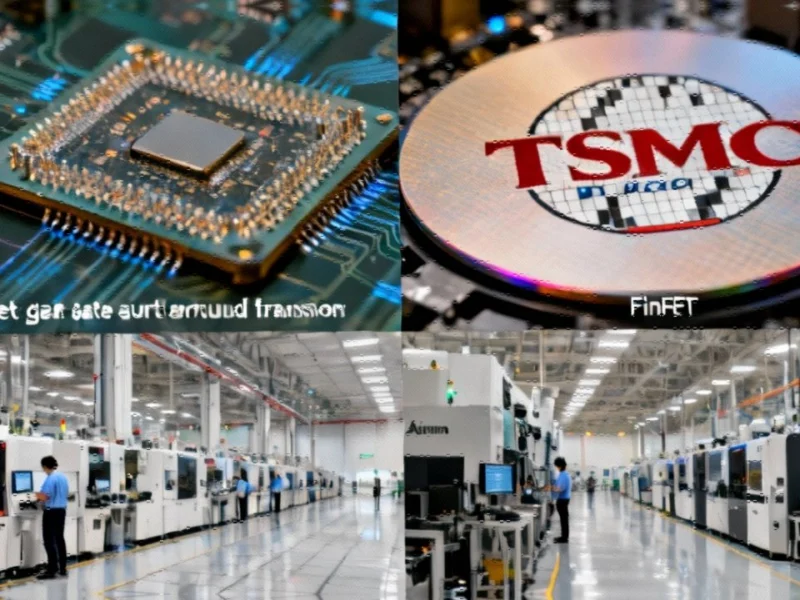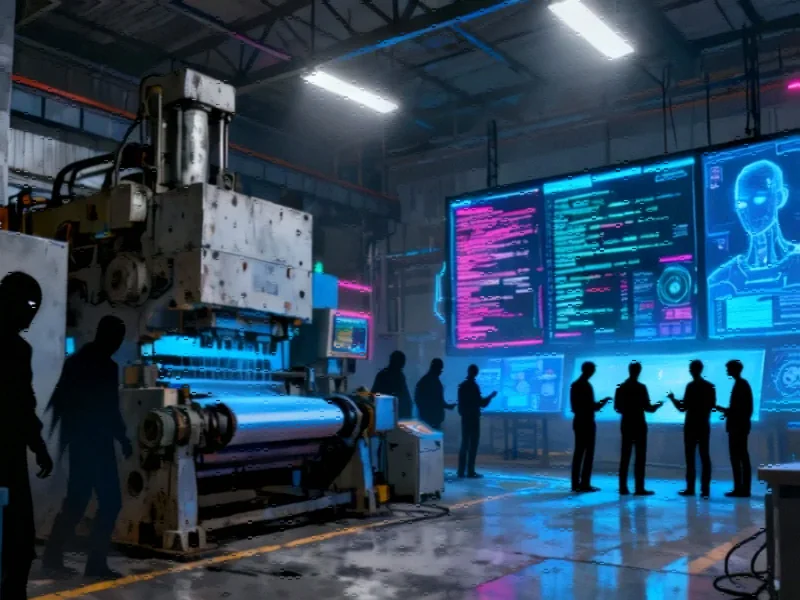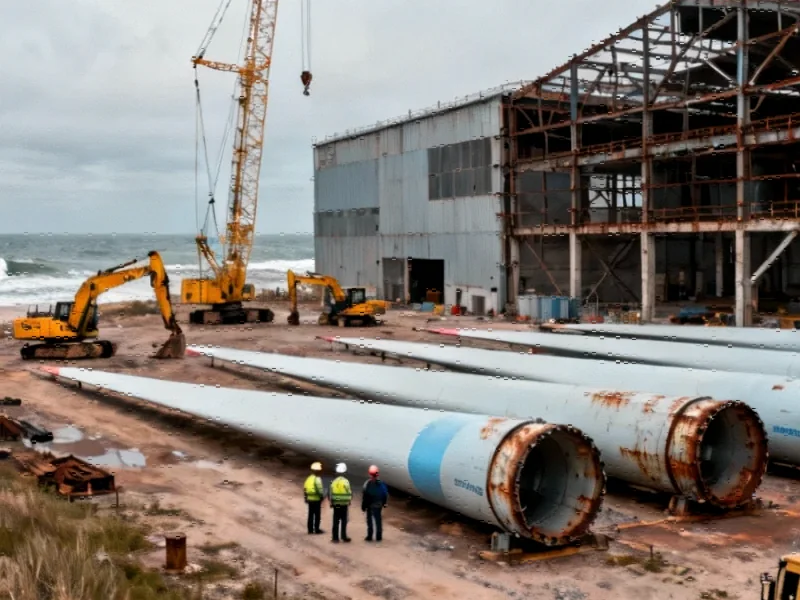Note: Featured image is for illustrative purposes only and does not represent any specific product, service, or entity mentioned in this article.
Advanced Chip Manufacturing Timeline Accelerated
Taiwan Semiconductor Manufacturing Company (TSMC) is moving faster than anticipated to bring its next-generation semiconductor technology to market, according to recent reports. Industry analysts suggest the world’s largest contract chipmaker will begin volume production of its 2-nanometer process nodes before the end of 2025, significantly ahead of the original schedule.
Breakthrough Transistor Architecture
The N2 node represents a fundamental shift in chip design, introducing nanosheet-based gate-all-around transistors that replace the FinFET architecture the industry has used since the 16-nanometer generation. Company executives reportedly indicated that early production yields have been strong, with mass production expected to ramp up substantially throughout 2026.
Sources familiar with the development state that TSMC is already working on an enhanced version called N2P, scheduled for the second half of 2026. This follow-on process is expected to deliver additional performance and efficiency improvements, continuing the company’s pattern of rapid technological innovation in semiconductor manufacturing.
Record Financial Performance
The accelerated manufacturing timeline coincides with exceptional financial results for the chipmaker. According to the analysis, TSMC’s third-quarter revenue surged more than 40% year-over-year to $33.1 billion, driven primarily by robust demand for AI accelerators and premium smartphone chips. Financial data reportedly shows that advanced process technologies accounted for nearly three-quarters of total sales.
The report states that capital spending will remain aggressive, with projections reaching up to $42 billion this year. Analysts suggest approximately 75% of this investment is directed toward expanding leading-edge manufacturing capacity to meet growing demand across multiple sectors, including industrial computing and automation technologies.
Arizona Expansion Accelerated
In a significant strategic shift, TSMC is fast-tracking its United States manufacturing capabilities. The company has already begun producing chips using its N4 process at the first module of Fab 21 near Phoenix and will bring N3 technology online next. However, during a recent earnings call, Chief Executive C.C. Wei announced the company will “upgrade our technologies faster to N2 and more advanced processes in Arizona, given the strong AI-related demand from our customers.”
This announcement marks a substantial acceleration of the company’s American operations, as N2 production at the Arizona facility had originally been anticipated near the end of the decade. The accelerated timeline reflects both growing infrastructure support and mounting pressure from U.S. policymakers to secure domestic chip production capacity.
Strategic Implications
The twin efforts in Taiwan and Arizona represent a pivotal moment for TSMC as it positions itself to meet exploding global demand for high-performance processors used in artificial intelligence and advanced computing applications. According to reports, construction of new modules for N2 and its successor, A16, will begin later this year.
When fully operational, approximately 30% of TSMC’s output from 2 nm-class and more advanced nodes will be produced in the United States. The Arizona site is expected to evolve into a comprehensive “GigaFab” cluster capable of manufacturing roughly 100,000 wafers monthly, fully integrated with packaging, testing, and local supplier networks.
Wei reportedly described the Arizona expansion as a step toward creating “an independent, leading-edge semiconductor manufacturing cluster” in the United States, acknowledging the broader geopolitical context surrounding chip manufacturing. The company is exploring additional land acquisitions around its existing campus to support expansion beyond its original $165 billion U.S. investment commitment, reflecting confidence in long-term market trends despite global uncertainties.
This article aggregates information from publicly available sources. All trademarks and copyrights belong to their respective owners.



